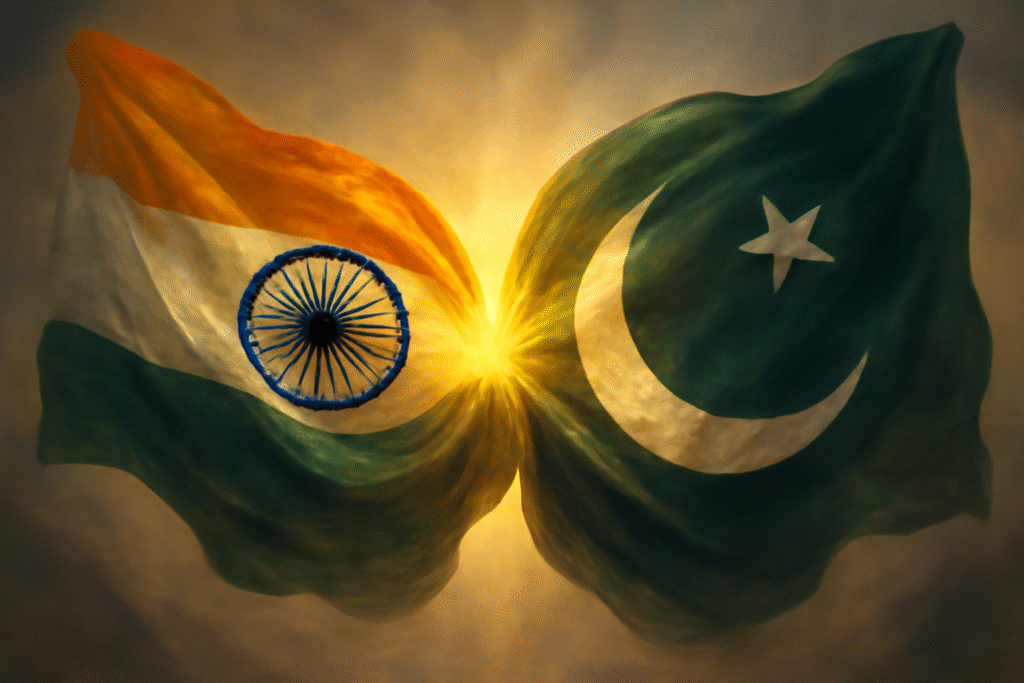War is never the answer to solving conflicts, but the reality is that both Pakistan and India have a deeply rooted history of tension and conflict that has shaped their military strategies and geopolitical interests. The idea of a war between these two nuclear-armed neighbors is a topic that has been on the minds of political analysts, historians, and citizens of the region for decades. It’s a scenario none of us want to see, yet it remains a possibility. So, what would it take for one side to emerge victorious in a potential war? What factors would shape the outcome?
In this article, we’re going to take a step back and look at the factors that could influence the outcome of such a war, from military capabilities to geography and international involvement. We’re also going to approach this question with a sense of humanity, acknowledging the devastating consequences of war for the millions of people who would be caught in the crossfire.
The Weight of History
To truly understand the potential outcome of a conflict between Pakistan and India, we first need to look at their shared history. The partition of British India in 1947 left millions displaced and caused deep-seated animosity between the two newly-formed nations. The Kashmir conflict, which began shortly after independence, remains a sore point, with both countries claiming the region as their own. Over the years, there have been several wars and skirmishes, including the brutal wars in 1947, 1965, and 1971, and the more recent Kargil conflict in 1999.
These historical events are not just footnotes in a textbook—they’re scars that both nations still carry today. The fear of another war often stems from the fact that these past wars have left wounds that haven’t fully healed. The Kashmir dispute, in particular, remains a flashpoint, and the situation remains volatile even in times of peace.
The Stakes of a War
Now, let’s address a very human aspect of this question: what would a war between these two countries mean for the people who live there? While political leaders and military strategists may make decisions in boardrooms, it’s the civilians—mothers, fathers, children, and the elderly—who will bear the brunt of any conflict. The economic impact would be catastrophic, both in terms of infrastructure damage and the global economic consequences. And let’s not forget the immense human cost—the lives lost, the families torn apart, and the trauma that lingers long after the battlefields are cleared.
For both countries, the cost of war is far more than just financial or military. It’s deeply personal. The idea of victory becomes hollow when you consider the lives that would be lost, the displacement of millions, and the psychological toll on the survivors. So, before we dive into military strategies, let’s keep this in mind: a real victory isn’t just about military strength it’s about preserving the human spirit.
Who Has the Upper Hand in Terms of Military Power?
If we had to look at the potential outcomes of a war between Pakistan and India, one of the first things that comes to mind is their military power. Both countries have invested heavily in their defense capabilities, and each has a distinct advantage in different areas.
1. Pakistan’s Military Strength Pakistan’s military is primarily known for its well-trained and well-equipped army, which is one of the largest in the world. In recent years, Pakistan has also made significant advancements in its air force and naval capabilities. However, Pakistan’s greatest strength lies in its nuclear arsenal. The presence of nuclear weapons serves as both a deterrent and a potential game-changer in any conflict. But let’s not sugarcoat it—this doesn’t guarantee a clear victory; it just adds an incredibly dangerous element to the mix.
2. India’s Military Strength India’s military is massive, with one of the largest armies in the world. India has invested heavily in modernizing its armed forces, and its military capabilities are spread across several key domains. Its air force is considered superior to Pakistan’s, and its navy is powerful enough to project influence across the Indian Ocean. India also boasts a significant nuclear arsenal, which would make any escalation in conflict catastrophic for both sides. However, India faces logistical challenges in fighting a war on multiple fronts, especially with the diverse terrain that separates different regions of the country.
Geography and Terrain: What Does the Landscape Say?
Geography plays an underrated but crucial role in determining the success of any military operation. Pakistan and India share a long and diverse border, from the mountainous regions of Kashmir to the vast plains of Punjab. The terrain would pose significant challenges for both armies.
The northern mountainous region, where Kashmir lies, would be difficult for either side to dominate due to the tough terrain. This is something that both countries learned the hard way during the Kargil conflict, where high-altitude warfare proved to be a huge challenge. This rugged landscape would provide opportunities for guerrilla warfare, where smaller, mobile units could create major disruptions.
On the other hand, the plains of Punjab offer strategic advantages for rapid military movements, but they also pose the risk of large-scale destruction due to the density of population centers and agricultural resources. Both countries would need to carefully manage their troop deployments in these areas to avoid unnecessary civilian casualties and infrastructure damage.
The Role of Technology in Modern Warfare
In modern warfare, technology can make or break a war. Both Pakistan and India have made huge strides in military technology over the years. Whether it’s the development of advanced fighter jets, missile defense systems, or cyber warfare capabilities, technology is an equalizer in the modern age. The question is: who controls the skies, who controls the seas, and who controls the digital battlefield?
India has an edge when it comes to air superiority, with more advanced fighter jets and better access to modern technology. However, Pakistan’s strategic use of its nuclear arsenal and missile defense systems could be a game-changer, especially in terms of deterrence. Cyber warfare also comes into play, as both nations are capable of launching digital attacks to cripple infrastructure or influence public opinion.
International Involvement: The World Watches
One of the key aspects of any potential conflict between India and Pakistan is the role of international actors. Both countries are surrounded by powerful neighbors with their own interests at stake. The United States, China, Russia, and even regional players like Iran have a vested interest in what happens on the subcontinent.
China is a key ally of Pakistan, and it would likely provide military, economic, and diplomatic support in the event of a conflict. On the other hand, India has strong relations with the United States and other Western countries, which could tip the scale in its favor in terms of military aid or diplomatic pressure on Pakistan.
International organizations like the United Nations would likely step in to mediate, but their ability to prevent escalation would be limited, especially considering the nuclear capabilities of both nations.
The Final Word: A War No One Wants
At the end of the day, the truth is simple: neither side wants a war. The losses would be too great, the destruction too devastating. In a region that has seen so much suffering already, a war between India and Pakistan would bring nothing but misery.
In the end, victory in a war isn’t just about military might. It’s about the lives that are saved, the relationships that are healed, and the futures that are secured. Both Pakistan and India, despite their differences, are home to millions of people who simply want to live in peace. The true victory would be in avoiding war altogether and finding ways to build trust, resolve conflicts, and ensure a better future for the generations to come.
So, while the world might debate who would win a war between India and Pakistan, the real question is this: how can we all work together to make sure such a war never happens?


